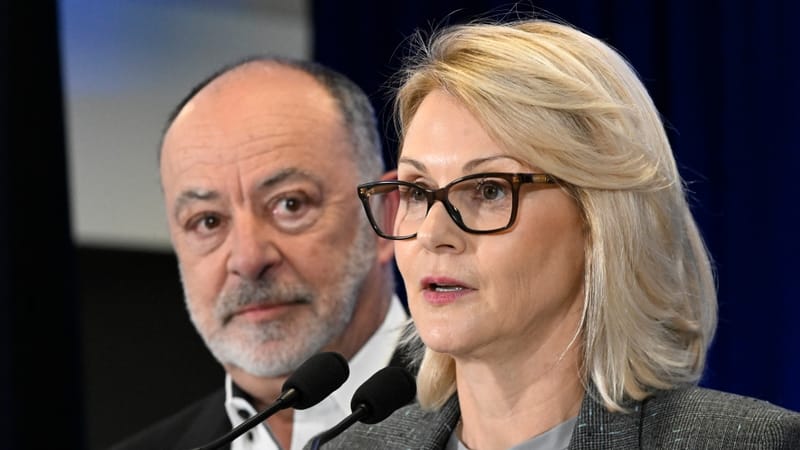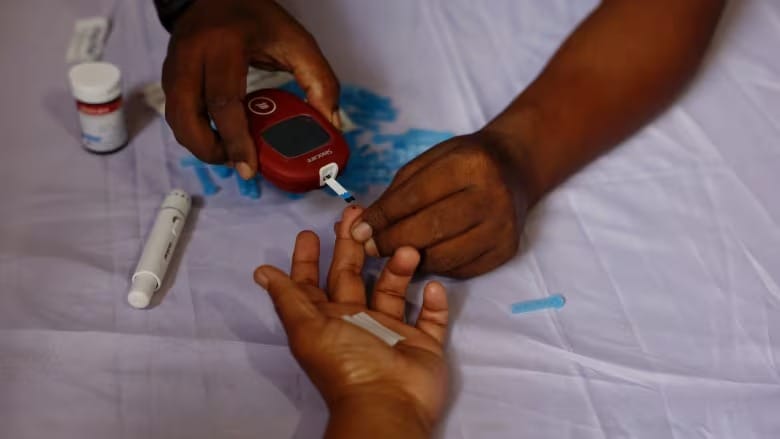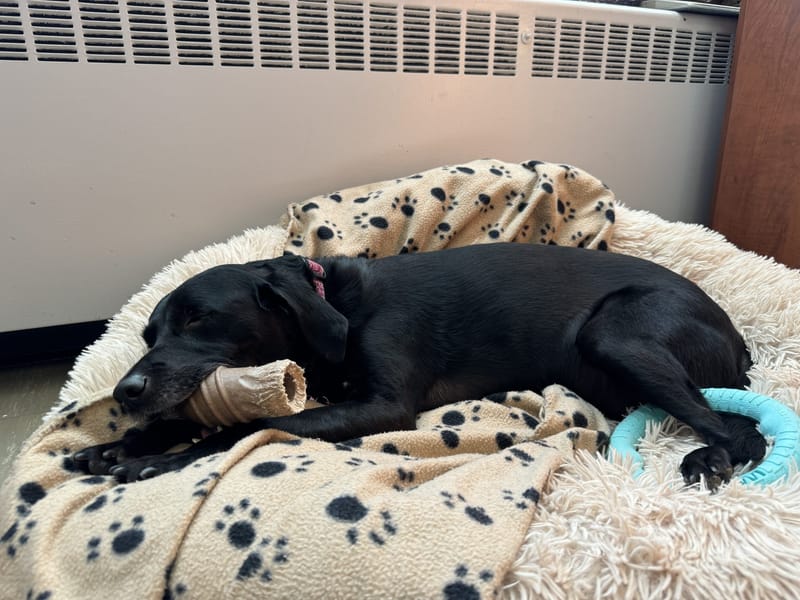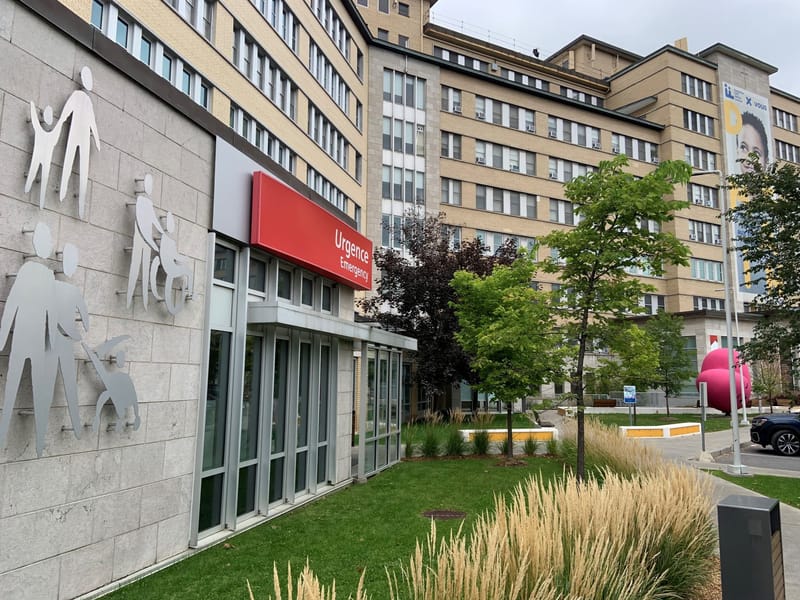John Vennavally-Rao on his double cancer diagnosis — and reason for hope
The lung cancer was particularly shocking. I’m 53 and have never been a smoker. Had this happened to me at the start of the 21st century, my doctors say I likely would’ve been dead within 18 months.
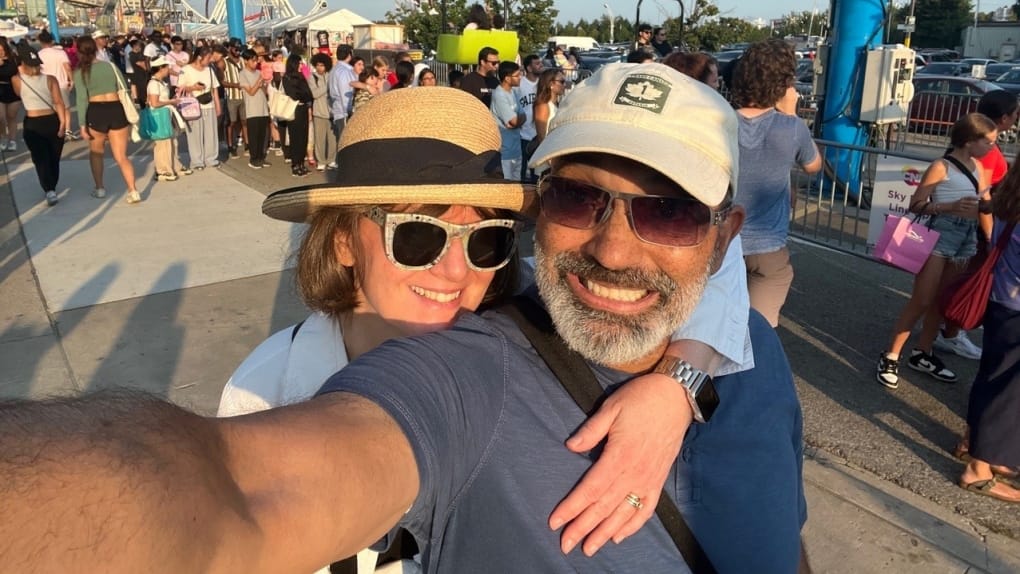
During a recent Green Day concert in Toronto, I was in the crowd with my wife, singing along to Billy Joe Armstrong's rock anthem “Wake Me Up When September Ends.” The song, which reflects on Armstrong’s father’s death from esophageal cancer in September 1982, is a reminder of my own connection to cancer awareness. I used to participate in the annual Terry Fox Run every September as a kid.
This year, I have a personal connection to this time of year due to my own battle with cancer.
Twelve months ago, after a routine colonoscopy, doctors discovered I had two distinct cancers: rectal cancer and lung cancer. Additionally, there were cancerous lesions on my liver. Remarkably, I had no symptoms and felt perfectly fine.
The lung cancer diagnosis was particularly surprising, as I’m 53 and have never smoked. My doctors indicated that if this had happened at the beginning of the 21st century, I likely would have been dead within 18 months.
Fortunately, due to significant advances in surgical techniques and the efforts of numerous cancer researchers, I’m doing well and looking forward to returning to work. This is despite having stage 2 and stage 4 cancers. I sometimes joke that it must make me a stage 6.
Reaching this point of hope—and even being able to make light of my situation—has been challenging. To date, surgeons have removed half of my right lung, a portion of my colon, and a third of my liver.

I lost nearly 30 pounds following a 10-hour surgery in late January. After the operation, I was sent to the ICU and spent a month in the hospital. My liver began to fail, causing jaundice, and I experienced life-threatening blood clots and a serious hospital infection. I lost my sense of taste and was too weak for chemotherapy. Remarkably, my liver has since recovered, though the lung cannot regenerate. I may not win any marathons, but I’m grateful to be able to breathe deeply enough to enjoy a concert, return to reporting, and even anchor a newscast. TV writers, please remember the golden rule: keep your sentences short!
Initially, I was apprehensive about having to use a temporary ileostomy bag. However, I’ve come to realize that a stoma can be an essential surgical option, allowing me to wear regular clothes and continue going to the gym. The stigma surrounding it is unwarranted.
As for my prognosis, thanks to extraordinary advancements in cancer treatment and targeted therapies, it’s surprisingly positive. However, lung and colorectal cancers remain among the deadliest. Like many cancer patients (around 247,000 Canadians will be diagnosed this year), I undergo regular scans.
Each scan brings anxiety as I hold my breath and hope for the best. The cancer drug makes me tired, I’m awaiting a third surgery, and I’m still processing what all this means for my future. But at least I have a chance at a future. Many are not so fortunate.
This weekend, to express my gratitude for the excellent care I’ve received, my wife Tammy is participating in the Princess Margaret Hospital Walk to Conquer Cancer. She’s raising funds to support their incredible work as one of the top five cancer research centers in the world. My doctors and nurses, many of whom are based at Princess Margaret, Mount Sinai, and Toronto General Hospital, have been exceptional.
In particular, we want to thank surgeons Dr. Thomas Waddell, Dr. Chaya Shwaartz, Dr. Fayez Quereshy, Dr. Mantaj Brar, and medical oncologists Dr. Carlos Muzlera and Dr. Ronald Burkes.
I’m also thankful for the support from my colleagues at CTV/BellMedia. My health plan is covering some prohibitively expensive drugs, and I have the benefit of taking an extended leave from work. I wish every Canadian with cancer could be so fortunate. My wife’s employer, Gowling WLG, has also been incredibly supportive.
From a reporter’s perspective, I wanted to understand the public takeaway from my story.
Dr. Burkes, my lead oncologist, informs me that a significant percentage of lung cancer patients are now non-smokers. He also notes that more women are now dying from lung cancer than breast cancer. Despite this, lung cancer research remains underfunded, partly due to its historical association with smoking.

Dr. Burkes also advocates for earlier colonoscopy screenings. Colorectal cancer is increasingly affecting younger people, and while screening currently begins at age 50 in Canada, he and many colleagues believe it should start at age 45, as is the standard in the U.S.
Regarding my twin cancer diagnosis—while unusual, it does occur. Last year, tennis star Martina Navratilova revealed she had been simultaneously diagnosed with both throat and breast cancer. Sometimes, doctors discover additional cancers while investigating the spread of an existing one.
When Peter Jennings announced his lung cancer diagnosis in 2005, he quoted the National Cancer Institute saying, “we are survivors from the moment of diagnosis.” Jennings passed away just four months later. For me, it has been a year of survival, and thanks to tremendous advancements in research over the past two decades, I remain hopeful for many more years to come.


